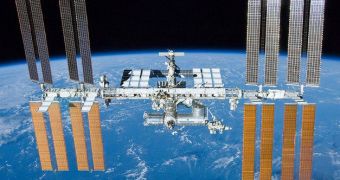Biological sciences could soon take a new leap forward, as the US National Institutes of Health just announced new grants to support three major studies on the International Space Station.
The investigations could lead to impressive breakthroughs in a number of research fields, and the new grants therefore come at a very appropriate time.
The new funds were awarded as part of the agency's Biomedical Research on the International Space Station (BioMed-ISS) program, and are estimated to worth about $1.3 million.
The main goal of the three researches will be to analyze the effects of microgravity on the immune systems, and also on the human skeleton.
Astronauts who participated in long-duration missions on the ISS, of up to six months, came back to Earth weakened, after having lost significant amounts of bone and muscle mass.
These studies will analyze how and why that happens. Given that the future of manned space exploration calls for long-term missions to Mars and beyond, this line of research is very important.
The ISS is at this point the only facility available to science that can provide microgravity conditions. Weightlessness can also be achieved in special airplanes, but those conditions usually last for a few dozen seconds.
The orbital complex is also designated as a US National Laboratory, which means that experts from academia, the private sector, as well as various government agencies can apply to conduct studies there.
“This is the first research sponsored by a government agency that's a non-traditional partner of NASA. We expect things to keep building from here,” says NASA official Marybeth Edeen.
She is based at the Johnson Space Center (JSC), in Houston, Texas, where she is the manager of the ISS National Laboratory Office.
The fact that the ISS is now opened for many research groups will open the way for a variety of studies, that would otherwise be impossible to conduct at all.
“Cells behave differently in microgravity. You can see things in microgravity that you cannot see on the ground,” says Edeen, quoted by Space.
According to NIH officials, the agency plans to fund two more rounds of projects under the BioMed-ISS program. Once those investigations are agreed upon, they too will fly on the ISS.

 14 DAY TRIAL //
14 DAY TRIAL //